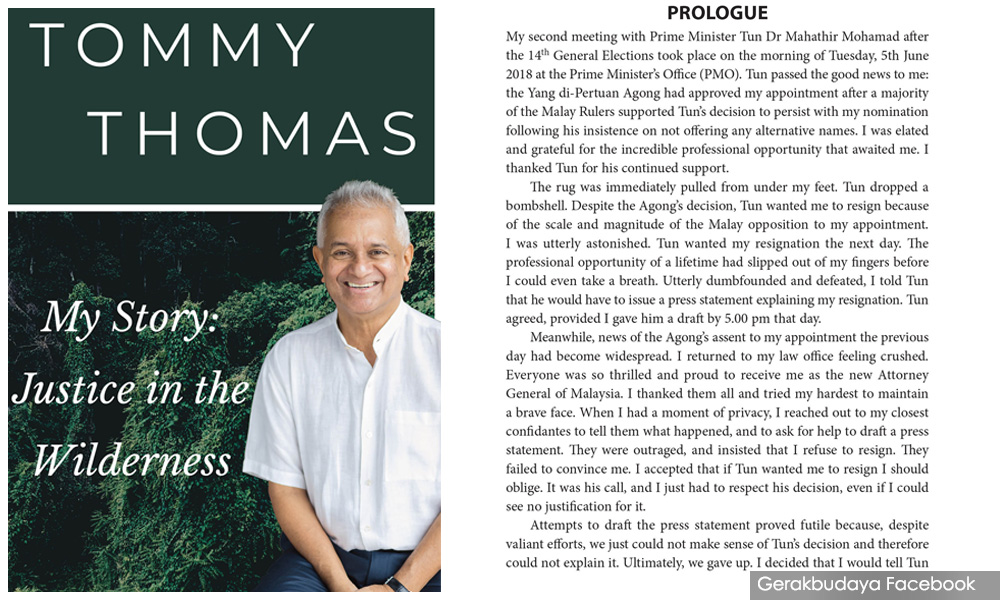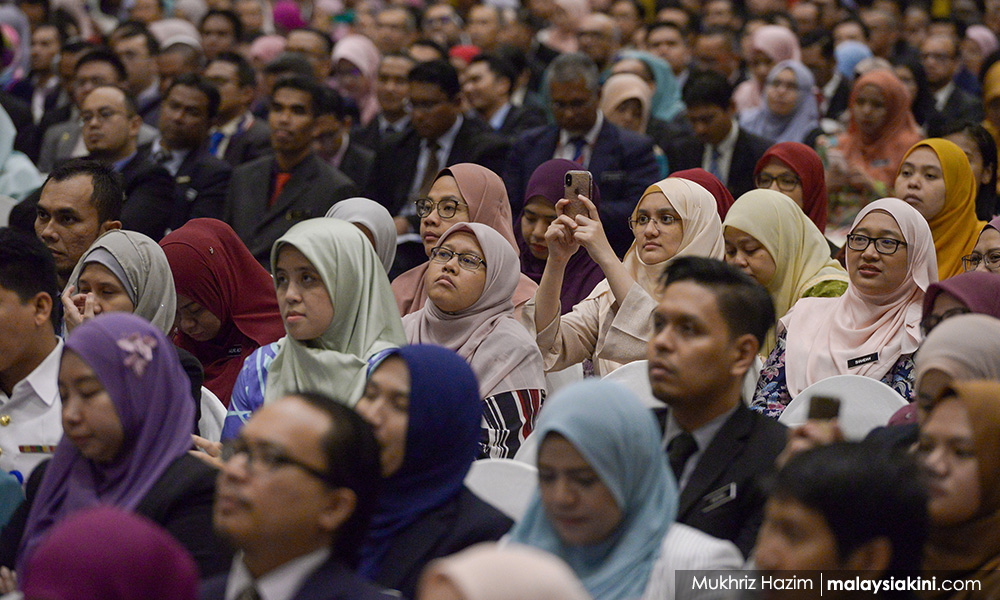Anwar Ibrahim and the politics of race
"And criticism is healthy, an essential element of any functioning democracy. In any event, I can take a lot on the chin, let alone a couple of bum raps and innuendoes."
– Anwar Ibrahim
People have asked me what I think of opposition leader Anwar Ibrahim’s review of former attorney-general Tommy Thomas’ book My Story: Justice in the Wilderness. Well, the answer is simple. I think it is an interesting review.
Moreover, the best part of the review is when Anwar disputes Thomas’ racial narratives in the book by offering up his own take on systemic racism, something that Anwar acknowledges exists.
There is a whole passage where Anwar decries the former attorney-general for laying “the preponderance of the blame being levelled on Malay leaders, giving the impression that racism is a malady afflicting only the Malay community”.
Keep in mind that most establishment Malay leaders claim that they are defending race and religion and they do so because they represent the Malay community. Also, keep in mind that Anwar acknowledges “racism in Malaysia is a systemic cultural and political problem, which has been exacerbated by government policies”, which also means that the people with the most political power in this country define the system and political operatives defend such racist policies even when they are from Pakatan Harapan.
Remember when I started dogging Anwar on his “don’t spook the Malay” narrative? Some folks have forgotten how it all started. It started in an interview where Anwar was asked about what he thought of Hindraf 2.0 demanding that UiTM should be open to all races.
Anwar said: "It gives a very negative perception. The Malays are worried, the government has only been formed so if we demand that they surrender, it is too soon. What is important now, for me, is to instil a strong confidence that we will defend the rights of all people without sacrificing bumiputera interests as enshrined in the Federal Constitution."
In other words, here is a Malay leader defending a Malay-only institution on behalf of the Malay community which he believes would want him to defend such issues, thus his warning of not spooking them.

Now, if Anwar who always has to flash his bone fides when it comes to race and religion because of the relentless attacks by the Malay establishment on his credentials, what more the average Malay political operatives, some of whom have gone so far as to claim that non-Malays have to be “pak turuts” or that Malay special rights should remain in perpetuity?
Hence, feeling aggrieved when someone points to the racism promulgated by Malay political operatives using terms such as privileges, rights and “in the constitution” is strange, especially considering that we have had Malay political operatives in the opposition and the establishment claim that Malay rights should never be challenged or this would lead to communal violence.
Don't get me wrong. In my last piece, I argued how non-Malay political operatives support and sustain a system which they claim is racist and bigoted and all the while decrying such a system. Knowing Thomas, I doubt he believes that racism is only confined to the Malay community, but racism and bigotry define the bumi system and is the language of mainstream politics in this country.
Take, for instance, Anwar’s defence of the civil service. First off, mainstream Malay politicians always claim that the civil service is one of the bastions of Malay privileges, hence any attempt to reform it to make it more egalitarian and diverse is trampling on “Malay rights”, whatever that means.
Look at the kind of racial politics at play when Anwar gets miffed at this passage from Thomas - “public sector lawyers had public service attitudes (and) were civil servants, earning a fixed monthly income and awaiting pension upon retirement” – which Anwar implies has racial undertones to it and even Anwar even references the myth of the lazy Malays.
Honestly, this is a generic perspective held by many all over the world when it comes to public servants. The idea that a government gig offers you job security which, in turn, diminishes professionalism and proactiveness becomes toxic in this country because of the narratives promulgated by Malay leaders that the civil service is a "Malay province”, hence criticism against it becomes racially charged.

Just last year, Akhbar Satar, in an op-ed piece about making the civil service great again, wrote of former senior civil servant Abdul Halim Shah Abdul Murad lamenting that “the quality of civil service recruits has deteriorated to such an extent that there is a gradual dilution of services and efficiency, referring to the Administrative and Diplomatic Service. We must select people with the right skills to do the job right. Candidates, therefore, must be screened thoroughly to ensure those making the cut are people with integrity”.
So, is this civil servant also disparaging the civil service and engaging in racial stereotypes? Or does such criticism only extend to a non-Malay who criticises the civil service?
This is the main point here. Non-Malay political operatives are always bending over backwards to show loyalty to the civil service because, so ingrained is this belief that the civil service and the Malay community are not mutually exclusive, that attacking one is also attacking the other.
In addition, we could go into how the private sector is dominated by one ethnic group that is mired in racism too, and yes, we will hear the aggrieved screams of how the private sector is based on egalitarianism and meritocracy, which is nonsensical.
What we have to remember is that political operatives use these systems to divide us. It is beneficial to them that these divisions are defined by systems, hence some sort of false equivalency can be made for political purposes or parity in political power is achieved between dominant ethnic groups through the nexus of corruption and patronage.
If the government could point to reforms that dismantle the systemic racism in government and political ideology, then the state would have the moral authority to tackle the inequalities in the private sector. But remember this is not in the game plan.
I am sympathetic to Harapan political operatives. “Bad government” is the establishment – Harapan and BN – and Harapan will always find it difficult to reform the system, because as de Tocqueville reminds us:
“The most perilous moment for a bad government is one when it seeks to mend its ways."
S THAYAPARAN is Commander (Rtd) of the Royal Malaysian Navy. A retired barrister-at-law, he hopes young people will assume the mantle of leadership – if there is to be any hope for this country. - Mkini
The views expressed here are those of the author/contributor and do not necessarily represent the views of MMKtT.
✍ Credit given to the original owner of this post : ☕ Malaysians Must Know the TRUTH
🌐 Hit This Link To Find Out More On Their Articles...🏄🏻♀️ Enjoy Surfing!




















Post a Comment